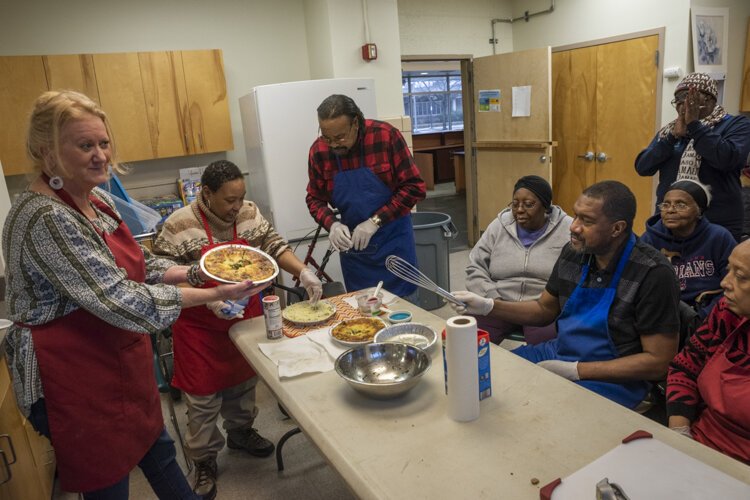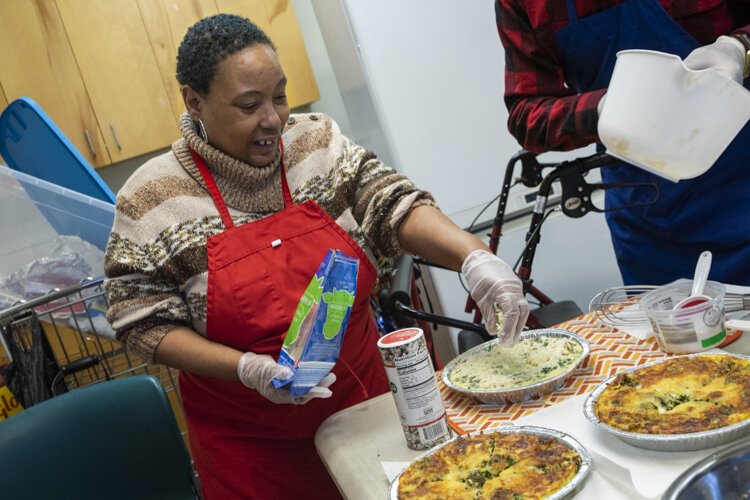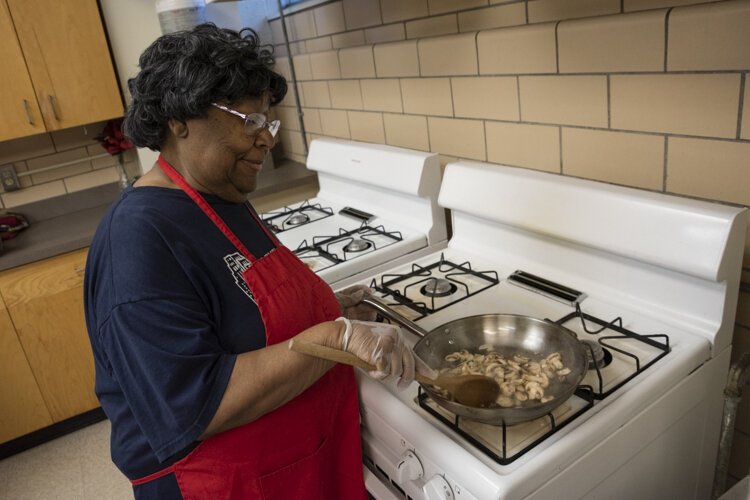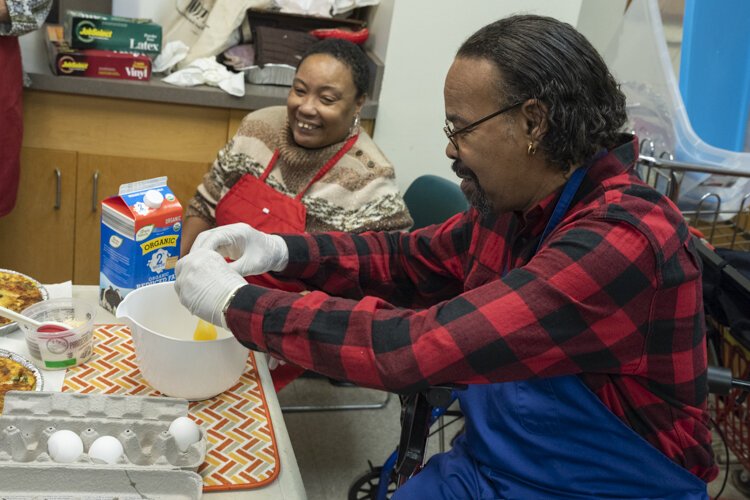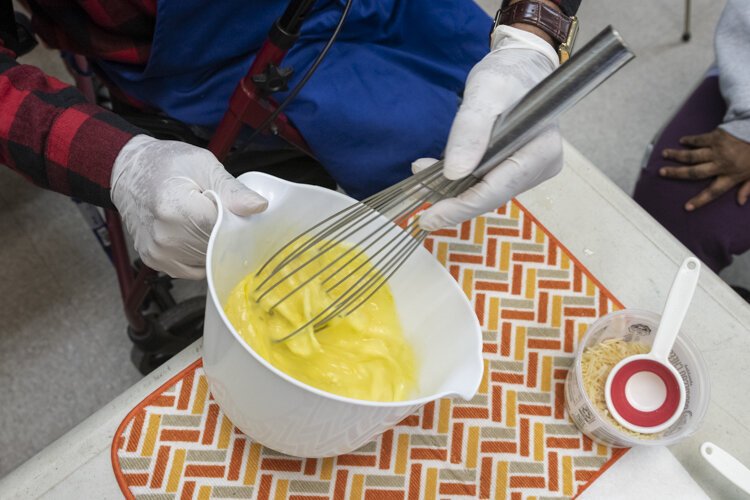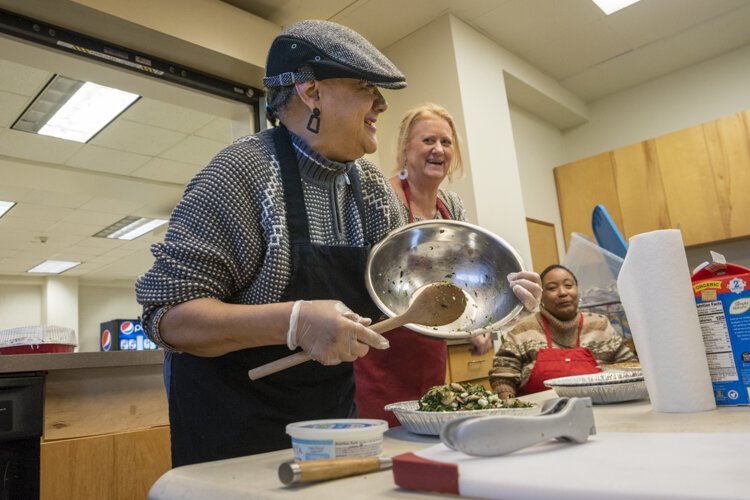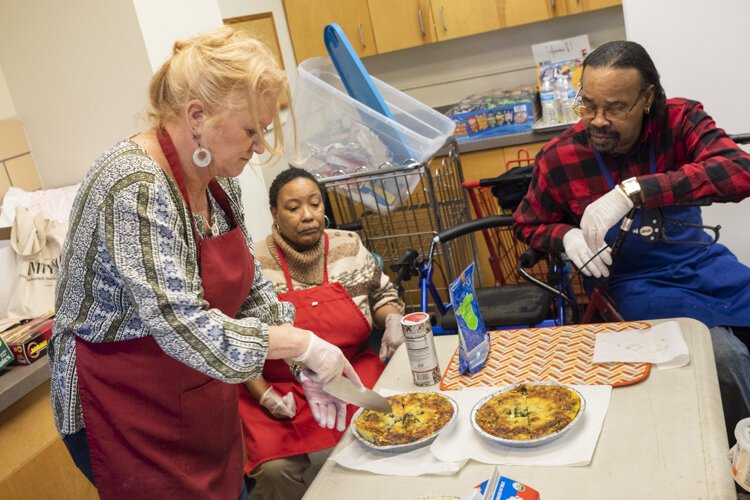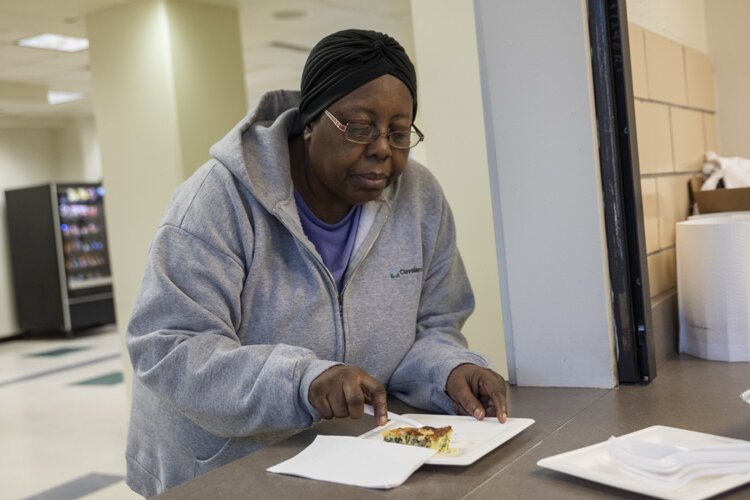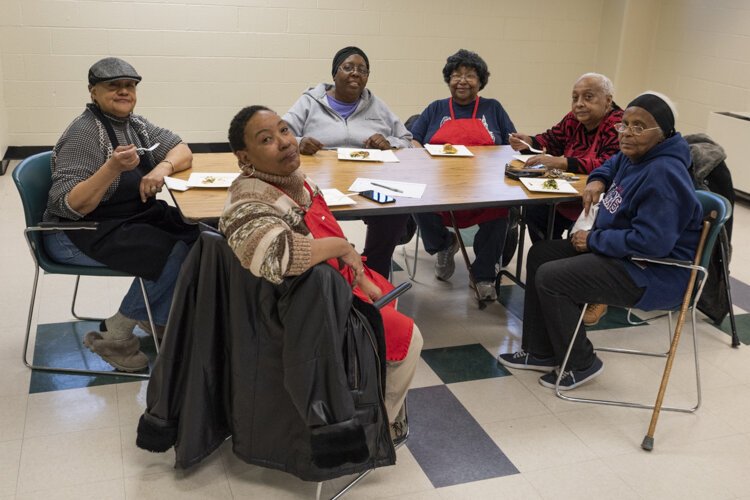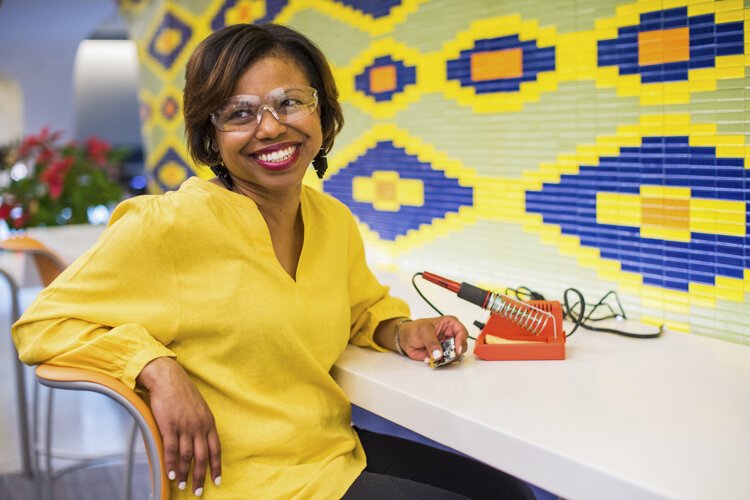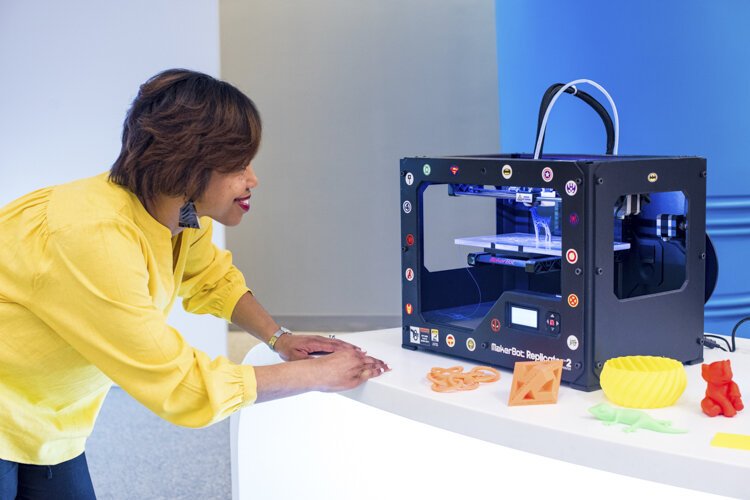Projects bridging Cleveland’s digital divide get a boost from Accelerate civic pitch competition
Accelerate: Citizens Make Change
Thursday, Feb. 27, at the Global Center for Health Innovation, 1 St Clair Ave. NE. Doors open at 4 p.m. Tickets are $35 in advance, $40 at the door.
Begun in 2015, Accelerate grew out of the Cleveland Leadership Center’s desire to have a nontraditional annual meeting. “Our goal was to help inspire and connect and train leaders to transform Cleveland,” says Michael Bennett. “So we thought, ‘How can we do something on an annual basis that would provide that opportunity for transformation in the most positive sense and reaching more people than we reach through our other programs?’”
The civic pitch competition was born. Three hundred attended the first year. Six hundred came last year. The experiment is working.
“We immediately turned to our corporate community, because we know a lot of organizations and businesses in town recognize that their businesses will be more successful the stronger that Cleveland itself is, and the more we are able to make people's lives better and help them in whatever way, and create new opportunities,” he says.
There’s magic in the room, with business cards flying back and forth.
“Being in that room on that night is like being no place else in Cleveland that I'm aware of,” Bennett says. “You just have to experience it. And there's plenty of time for people to meet and mingle and introduce themselves and learn about what's happening in the community. You can’t help but walk away from it feeling optimistic about our future.”
Susan Porter wants to help low-income Cleveland seniors find healthy recipes online. Sonya Pryor-Jones wants to introduce Glenville residents to digital fabrication. Both are making progress a year after making a pitch.
They presented their proposals last February to an attentive audience at the Accelerate: Citizens Make Change civic pitch competition. Since then, both have capitalized on the connections they made.
“People get excited and enthusiastic that so many people in Cleveland have ideas, and that so many of these ideas have potential, if people are just able to share them with others and get people to hear them and make connections,” says Michael Bennett, spokesman for the Cleveland Leadership Center, the annual event’s organizer.
Ahead of this year’s big night, Thursday, Feb. 27 (see sidebar for details), we asked Porter and Pryor-Jones for updates on their efforts to bridge the city’s digital divide.
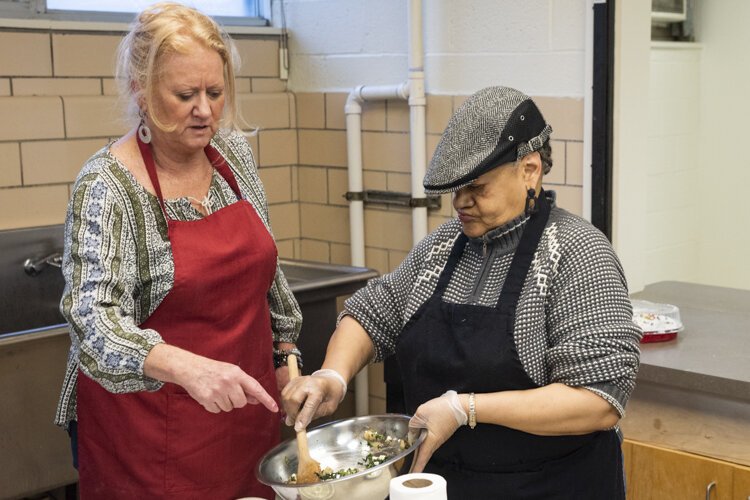 Susan Porter’s project, Recipe Re-mix, is on a mission to teach people how to fix their favorite foods in healthier ways.Susan Porter
Susan Porter’s project, Recipe Re-mix, is on a mission to teach people how to fix their favorite foods in healthier ways.Susan Porter
They deep fried almost anything at the Town Fryer. Twinkies. Oreos. Macaroni and cheese. Susan Porter, who moved to Cleveland 20 years ago, ran the Superior Avenue restaurant from the early 2000s to 2010. Then life took a turn.
Traffic at the restaurant cratered, and Porter boldly decided to go to college in her 50s. She graduated from Cornell University in 2014 and moved back to Cleveland.
Converted to healthy eating, she’s on a mission to teach people how to fix their favorite foods in healthier ways.
Porter’s project is called Recipe Re-mix. It began when she heard that seniors living at the Cuyahoga Metropolitan Housing Authority’s Cedar High Rise in the Central neighborhood were hardly using their new internet access. She got permission to start a focus group there.
“I wanted to find out how I could help them use the internet in a way that would be meaningful and have a positive impact on their lives.”
Their biggest concerns, she found, were health related: diabetes, high blood pressure, heart disease and, with their grandkids, obesity.
“All of these issues are affected by diet, and I thought, ‘Well, lucky me, I’ll just show them how to find healthy recipes online, and it'll be great,’” Porter says. “So I started looking for them, and it's like falling into a rabbit hole. You have to read through these blogs and then all the ads that pop up. And I thought, ‘How are people who are not only digitally illiterate but also functionally illiterate going to maneuver this when I get frustrated by it, and I'm pretty computer savvy?’”
So she started collecting recipes from the seniors to put on her own basic website. But first, she subbed some ingredients. Shredded cheddar cheese and Greek yogurt instead of Velveeta. Maple syrup instead of white processed sugar. Whole wheat flour. Chickpea pasta. Skim milk. Shredded zucchini. Less salt, butter and oil.
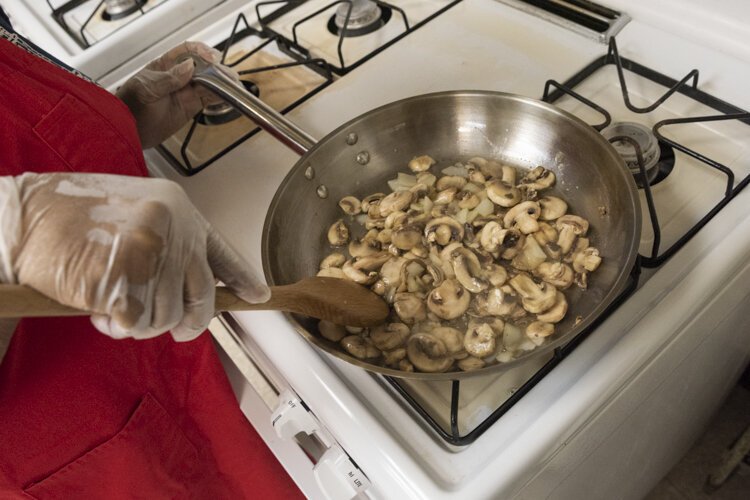 A Cedar High Rise senior sautees some mushrooms for a healthy quiche.She was surprised how well she connected with the black seniors. “I’m a 60-year-old white woman. Why has this been so successful?”
A Cedar High Rise senior sautees some mushrooms for a healthy quiche.She was surprised how well she connected with the black seniors. “I’m a 60-year-old white woman. Why has this been so successful?”
The answer soon became clear. “I didn't tell them what they should or should not do,” Porter says. “I worked with them to show them how they can use different ingredients in the foods they already love and can make them healthier, and that's a big difference.”
The seniors enjoy their twice-a-month cooking sessions so much, they’ve given themselves their own name. “They are the Cedar High Rise Pioneers for Healthy Eating, and they’re fabulous,” she says.
Porter has built their trust. “They have buy-in on this, they’re invested, they've put their efforts into the pot,” she says. “These are the foods that we love. We don't want to give them up. We shouldn't have to give them up, let's just see how to make them healthier.”
She is returning to Accelerate to make a second pitch, to expand her project with technology, utilizing smart devices to help more people engage. They live-stream their cooking sessions, and she wants to upgrade the website to reach more people. It could even go national, the St. Louis native says.
“The end game is to be able to provide all the tools that people need to eat a healthier diet,” she says.
Though Porter didn’t win last year, she found the Accelerate experience valuable. “Just getting my project out there was a win for me,” she says. “Every time I practice my pitch, it helps me to better define my vision. I didn’t receive money, but meeting people, making connections, and learning about the projects others are doing is always a win for me.”
“She didn't win money,” Bennett says. “She made connections. She met a lot of people. She got some ideas. She launched her project and then decided to come back this year because she wants to expand it even further and use Accelerate as a stage to share that idea with others and hopefully find support.”
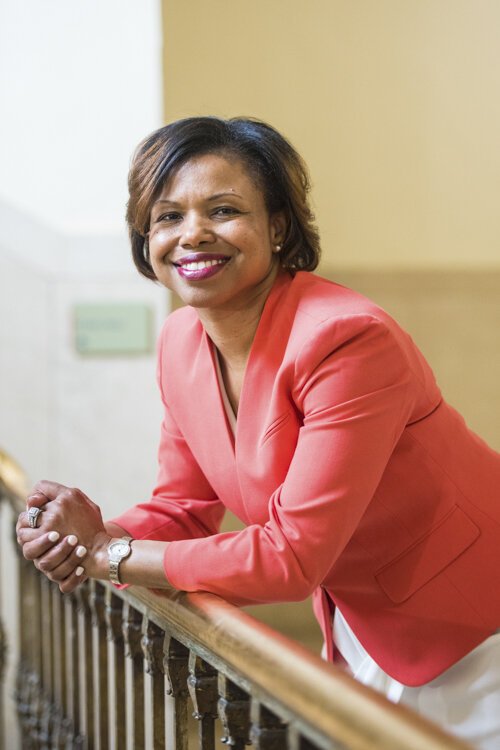 Sonya Pryor-Jones wants to introduce Glenville residents to digital fabrication.Sonya Pryor-Jones
Sonya Pryor-Jones wants to introduce Glenville residents to digital fabrication.Sonya Pryor-Jones
Columbia Avenue, a quiet residential street in Glenville, is about to get a technology jolt. Pryor-Jones plans to open a digital fabrication lab in a house in the Cleveland neighborhood.
“Digital fabrication is a wonderful opportunity for people ages 2 to 102,” she says. You can create almost anything with a computer-controlled 3-D printer, milling machine, laser cutter, or other manufacturing device.
“I'm looking for this to create an opportunity for people to have practical, hands-on learning as it relates to STEM, but also for them to have some novelty and fun in their lives and just make a trinket that makes them happy because they created it,” says Pryor-Jones, chief implementation officer for the Fab Foundation.
Worldwide, 1,800 of these creative workshops, called Fab Labs, are in 100 countries. Cuyahoga County has a dozen. But Glenville will have the first Fab House, which is Pryor-Jones’ concept. International fabrication experts will do guest workshops. Some will live and teach there in long-term residencies.
“Our community from the Fab Lab network comes from all walks of life,” she says. “We're talking about scientists, engineers, artists, people with extensive amounts of expertise, and also people who are very service oriented and entrepreneurial.”
Technology isn’t the project’s only focus, the Glenville native says. “The goal is to democratize digital fabrication, putting these tools in the hands of everybody who's interested, because we believe these tools can help make change.”
To get it started, her family donated the house. “It was the very first house my husband and I bought as a married couple.” They left Glenville 18 years ago and live in South Euclid now, so she is getting to know the neighbors again and seeing what they think of the idea. “I am now working with a group of bridge builders, and they are developing a resident engagement strategy for the project,” she says. The Cleveland Leadership Center is helping with its Cleveland Bridge Builders program, which engages midcareer professionals in civic programs like hers.
Rezoning the area from residential to commercial took several months. “The house has great bones, like many of the properties built in core Cleveland many years ago,” she says. They gutted the interior and soon will begin a three- to four-month remodeling process, including three bedrooms on the second floor. An ioby campaign is a key part of fundraising efforts.
“It really is, I think, in many ways this wonderful convergence of all the things that I believe in that help make society in the world that we live in a better place,” the Kenyon College graduate says. “The opportunity to engage with people from different parts of the world. The opportunity for a combination of academic fields to come together and create something new. I think also the opportunity to ensure that community members who are typically overlooked and marginalized have first-class expertise at their fingertips and available to them.”
“She's going back to her roots,” Bennett says. “She grew up in a neighborhood where she wants to develop this Fab House, where there is a lack of access to technology. And through her work, she's hoping to address that and expose people who live in her former neighborhood to something that they don't have, the opportunity to experience or use or learn.”
And Accelerate helped Pryor-Jones make it happen. “Not only did I make some connections, but it was a public way for me to test how the idea would resonate,” she says. “I had been thinking about it for some time, and the pitch was what I needed to move beyond just thinking about it.”

